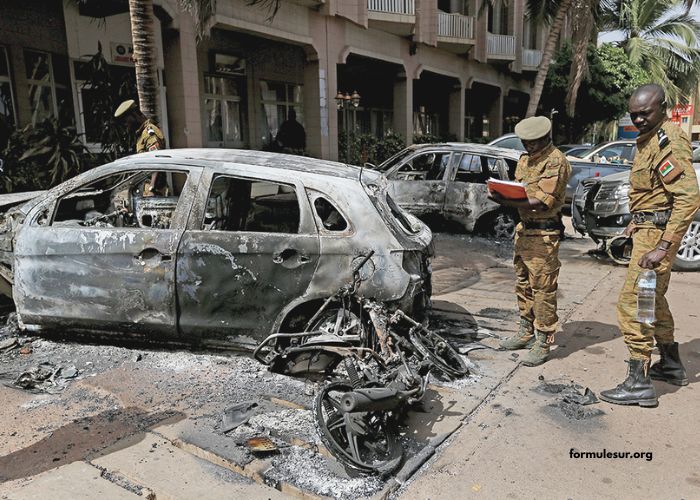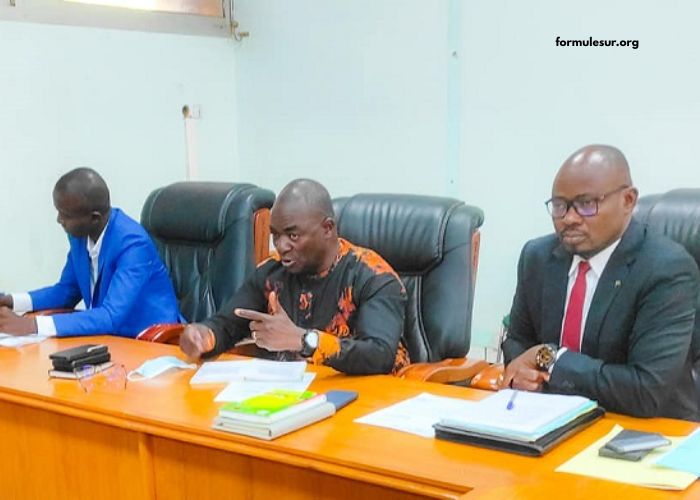The threat of terrorism in Burkina Faso has become a growing concern in recent years. The rise of terrorist groups operating in the Sahel region, particularly in countries like Mali, Niger, and Burkina Faso, has led to devastating attacks, loss of life, and displacement of thousands of people. Terrorisme Au Burkina Faso is not just a national issue but a regional one that threatens the stability of the entire Sahel area. The situation has prompted both national and international responses, with the government and various international organizations working together to address the challenges posed by these violent extremist groups.
Over the past decade, Burkina Faso has seen a sharp increase in the frequency and intensity of terrorist attacks. The escalating violence has caused widespread fear, disrupted daily life, and strained the country’s resources. The rise in Terrorisme Au Burkina Faso has had a significant impact on the country’s political, economic, and social fabric. In response, the Burkinabe government has sought assistance from the international community to combat this ever-present threat. With military operations, peacekeeping efforts, and diplomatic actions, the goal is to reduce the influence of terrorist groups and restore peace and stability to the country.
What Is the Current Situation Regarding Terrorisme Au Burkina Faso?
The situation of Terrorisme Au Burkina Faso is dire and continues to worsen. Over the past few years, terrorist groups such as al-Qaeda in the Islamic Maghreb (AQIM) and the Islamic State in the Greater Sahara (ISGS) have targeted the country’s security forces, civilians, and infrastructure. These groups are part of a broader network of jihadist organizations that have infiltrated the Sahel region. The goal of these groups is to destabilize the region, disrupt government functions, and impose their ideology.
The scale of violence in Burkina Faso has been alarming. Attacks on military convoys, government offices, and civilians have become frequent. In addition, terrorist groups often target schools and places of worship, contributing to an atmosphere of fear and instability. The government has struggled to protect its citizens from these attacks, and the response from the military has been challenging due to a lack of resources, training, and sometimes coordination. However, despite the ongoing violence, efforts continue to push back against these groups and restore some level of peace.
The country’s efforts to tackle Terrorisme Au Burkina Faso are compounded by the geographical location and socio-economic challenges faced by the region. Burkina Faso shares borders with Mali and Niger, both of which have also experienced rising terrorist activity. As a result, the entire Sahel region has become a hotbed of terrorism, making it difficult for any single country to address the crisis on its own. The situation calls for international collaboration to combat terrorism and its root causes.
How Has the Government of Burkina Faso Responded to Terrorisme Au Burkina Faso?
In response to the rising threat of Terrorisme Au Burkina Faso, the government has undertaken various measures to combat terrorism and ensure national security. The first step has been bolstering the country’s military capacity. The Burkinabe army has been engaged in various operations across the country to combat terrorist cells and protect civilians. These operations often involve targeted strikes against known terrorist hideouts and strategic positions held by insurgent groups.
Furthermore, the government has strengthened cooperation with international partners, particularly France, the United Nations, and the Economic Community of West African States (ECOWAS). These organizations have provided military, logistical, and financial support to Burkina Faso’s security forces. France, in particular, has been heavily involved in counterterrorism efforts in the Sahel through Operation Barkhane, which aims to eliminate extremist groups in the region.
Despite these efforts, the government of Burkina Faso faces significant challenges in its fight against Terrorisme Au Burkina Faso. The country’s military, although dedicated, is often ill-equipped and lacks the resources necessary to combat the well-funded and highly organized terrorist groups. As a result, the government has increasingly relied on international support and peacekeeping forces to maintain order and fight against extremism. Additionally, addressing the root causes of terrorism, such as poverty, unemployment, and political instability, remains a critical part of the government’s strategy.
How Has Terrorisme Au Burkina Faso Affected the Population?
The impact of Terrorisme Au Burkina Faso on the population has been devastating. The increase in terrorist activities has resulted in the displacement of hundreds of thousands of people within the country. Families have been forced to flee their homes due to attacks by terrorist groups, and many have sought refuge in urban areas or in neighboring countries like Ghana, Togo, and Côte d’Ivoire.
The threat of Terrorisme Au Burkina Faso has also severely disrupted daily life. Schools have been closed, markets have been attacked, and people have been forced to live in constant fear. Economic activities have been disrupted, leading to higher levels of poverty and unemployment. Many businesses have shut down, and agriculture, which is the backbone of the country’s economy, has been severely affected. The inability of the government to fully control the country’s borders and rural areas has further exacerbated the situation.
In addition to the physical threats, the psychological toll of Terrorisme Au Burkina Faso has been immense. The fear of being targeted by terrorist groups has led to widespread trauma, particularly in rural areas where the government’s presence is minimal. Communities are often left to defend themselves, with limited access to medical care and support services. The long-term impact of such violence is likely to persist for generations, as it creates a culture of insecurity and mistrust between communities and the state.
What Role Do International Partners Play in Combating Terrorisme Au Burkina Faso?
International partners play a crucial role in supporting Burkina Faso in its battle against Terrorisme Au Burkina Faso. Given the scale of the terrorist threat, the government alone cannot address the situation without external support. The international community has provided various forms of aid, including military assistance, humanitarian relief, and technical expertise.
The French government has been a key ally, as France has military personnel stationed in the region as part of Operation Barkhane. France’s involvement has been vital in supporting counterterrorism operations and providing training to the Burkinabe military. In addition, the United Nations and the African Union have also offered their support, with peacekeeping forces deployed to stabilize the country.
Furthermore, the United States and the European Union have provided Burkina Faso with financial aid, intelligence-sharing, and resources to help fight terrorism. The training of Burkinabe security forces is also a critical part of the strategy, as it aims to strengthen the country’s defense capabilities. Despite this assistance, the challenges remain immense, and the situation is far from resolved.
How Can the International Community Help Burkina Faso in Combating Terrorisme Au Burkina Faso?
The international community can play a significant role in helping Burkina Faso combat Terrorisme Au Burkina Faso by providing targeted assistance and support. One of the most critical areas for international intervention is in the realm of intelligence sharing and surveillance. Terrorist groups are highly mobile and often cross borders, making it essential for neighboring countries and international partners to collaborate in tracking these groups’ movements and cutting off their supply chains.
Another critical area is providing Burkina Faso with the resources it needs to enhance its military capacity. The country needs better equipment, such as armored vehicles, weapons, and communication tools, to improve its ability to combat terrorist cells. In addition, training the security forces in modern counterterrorism tactics and improving their coordination with other regional forces will be essential in strengthening the fight against terrorism.
The international community can also help by addressing the root causes of terrorism, such as poverty, lack of education, and political instability. Development projects aimed at improving the socio-economic conditions of the population could help reduce the appeal of extremist ideologies and create more stable communities that are less susceptible to radicalization.
Conclusion
In conclusion, Terrorisme Au Burkina Faso represents a significant threat to the country’s security and stability. The increasing frequency of attacks has devastated the population and strained the government’s ability to maintain order. However, Burkina Faso is not fighting this battle alone; international partners have provided military, logistical, and financial support to bolster the country’s defense against terrorism.
While challenges remain, the continued collaboration of both local and international forces is crucial in combating terrorism and restoring peace to Burkina Faso.

